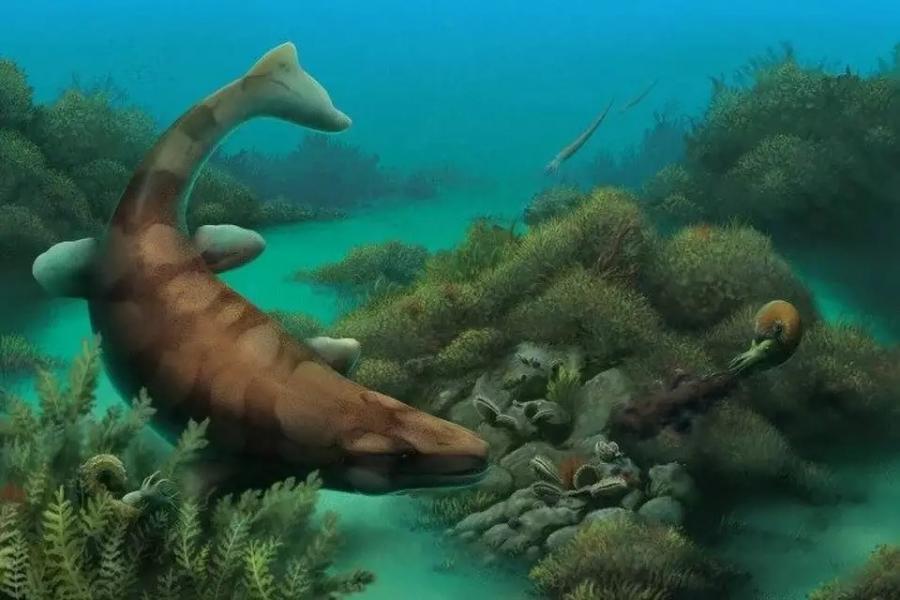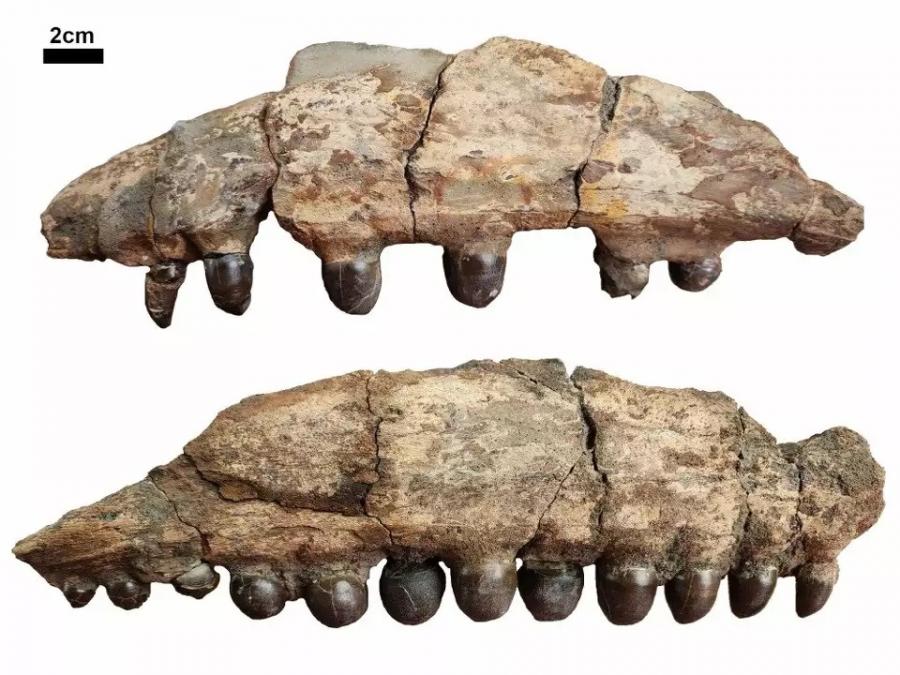LADONIA, TX — Fossils of a 20-foot-long ancient sea predator, Globidens alabamaensis, dating back 80 million years, were recently discovered in North Texas.
The find, made in 2023 by a private fossil hunter, consists of the nearly complete jaws of the mosasaur, with 12 teeth preserved in one jaw and six in the other.

Rare 80-Million-Year-Old Fossils Unearthed in Northeast Texas
The remains were unearthed from the Ozan Formation in an 8-inch-thick fossil deposit located in the North Sulphur River near Ladonia, Texas. According to LiveScience, the teeth are only an inch long and notably blunt, designed for crushing tough shells of turtles and mollusks rather than tearing flesh, setting the species apart from other mosasaurs.
The Globidens species, first identified in 1912, is among the rarest mosasaurs in North America, with fossils typically comprising teeth and small jaw fragments.

Rare 80-Million-Year-Old Fossils Unearthed in Northeast Texas
The discovery was published in the Journal of Paleontological Sciences on Aug. 14. Texas was largely underwater during the mosasaur’s time, when they lived alongside dinosaurs, although mosasaurs are more closely related to snakes and lizards.
In 2022, a separate mosasaur discovery was made in the same region by amateur paleontologist Stephen Kruse, further cementing North Texas as a fossil-rich area.
Subscribe to the LIVE! Daily
Required






Comments
Listed By: Rita Repulsa
Those are the remains of my late uncle! Put them back!
- Log in or register to post comments
PermalinkBut the current democratic presidential nominee is dredging for votes and it appears your dead uncle made the list for mail in ballots. Here's to better luck in 4 years maybe.
- Log in or register to post comments
PermalinkListed By: Rita Repulsa
He always hated warm-blooded creatures and wanted to see them all go extinct. If he was still alive, he likely would have voted Democrat for that very reason.
- Log in or register to post comments
PermalinkPost a comment to this article here: